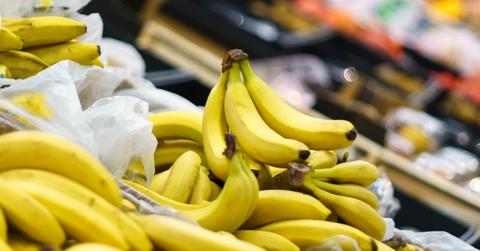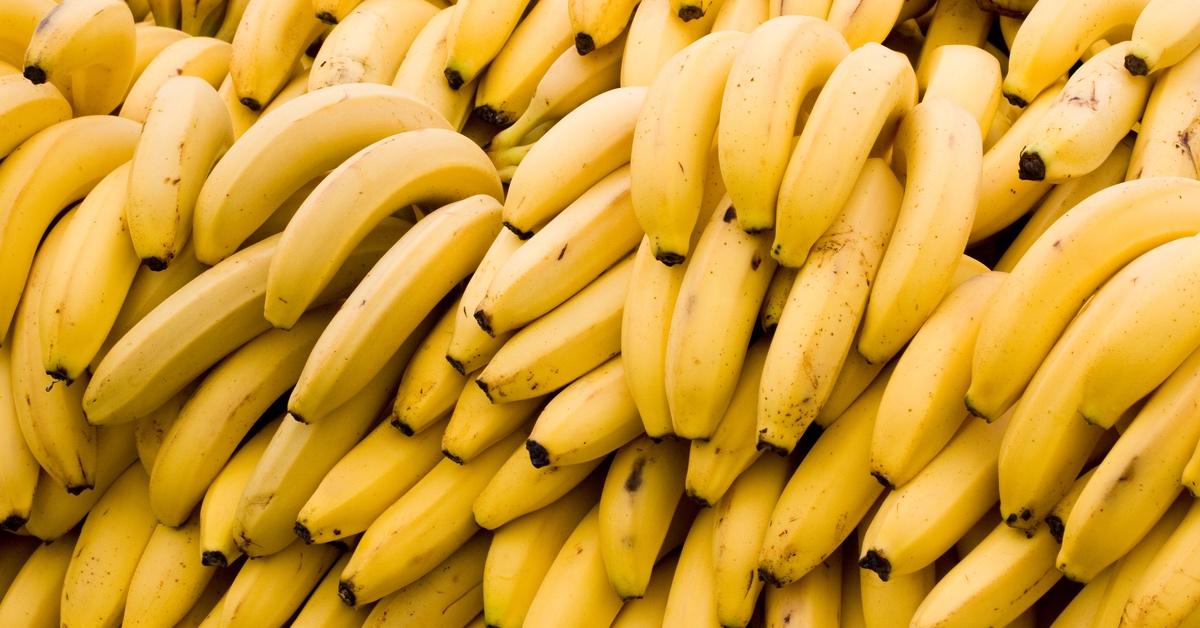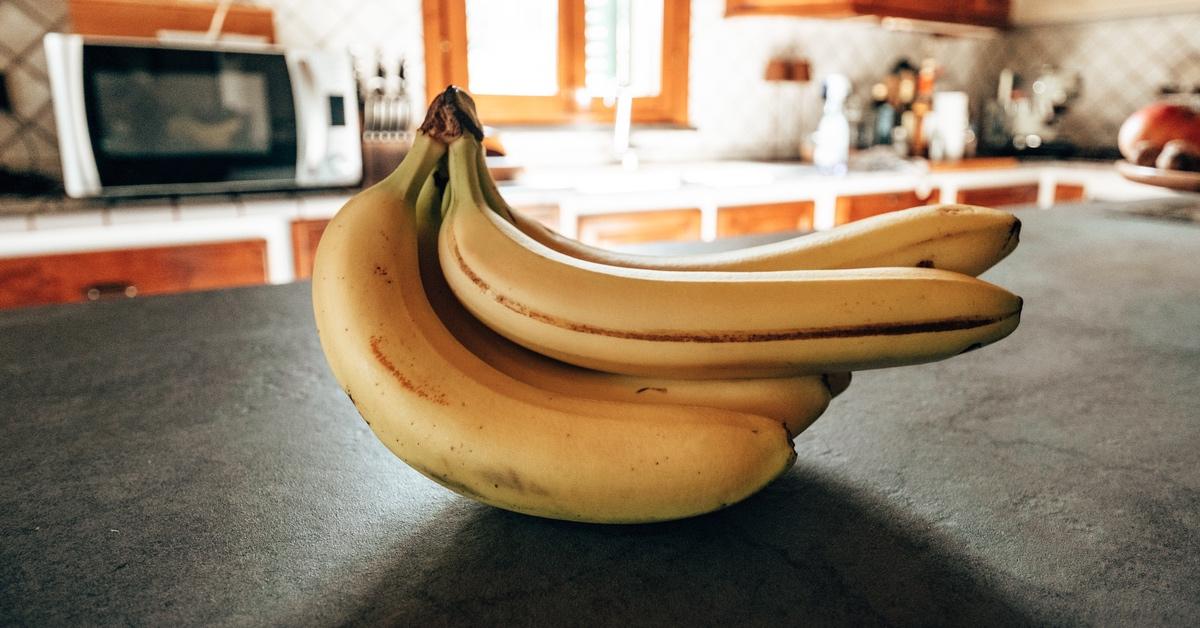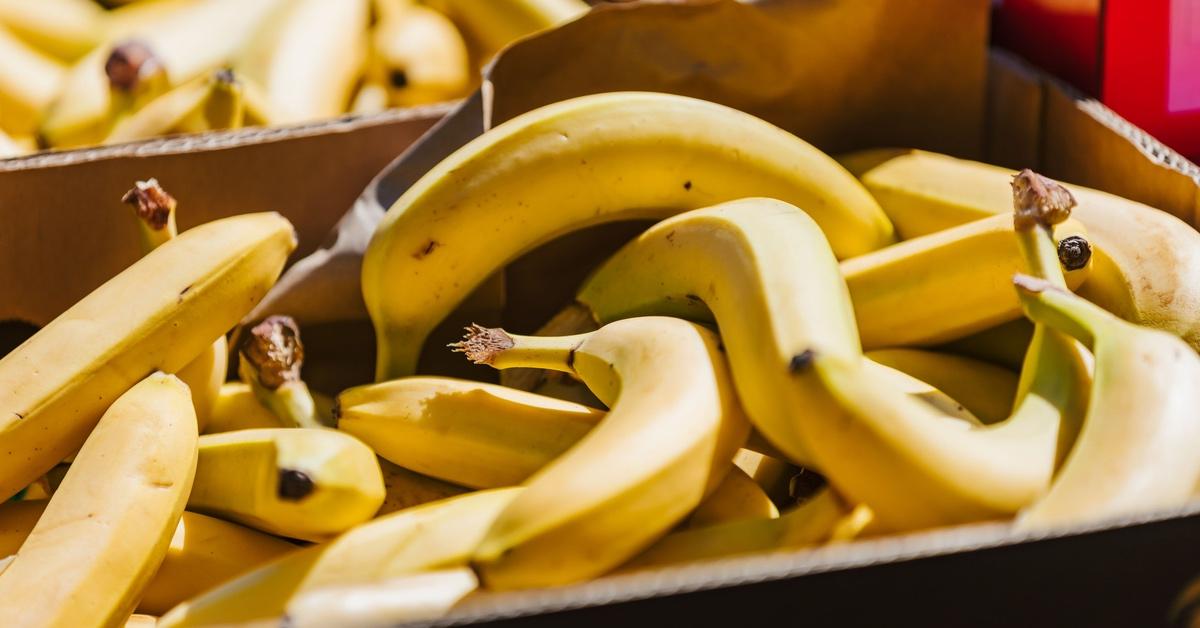Your Grocery Bill Could Get Higher Thanks to Climate Change — Here's Why
"I think climate change is really an enormous threat to the banana sector," said Paul Liu, Senior economist at the UN's Food and Agriculture Organisation.
Published March 12 2024, 2:30 p.m. ET

Between supply chain issues and "shrinkflation," consumers rarely get the high-quality products they deserve for a decent price. Food recalls have become more common due to everything from product contamination to listeria outbreaks. Unfortunately, this trend is going to continue due to the ongoing effects of climate change.
You may wonder how climate change accounts for why produce items such as bananas are so expensive. Great news! Keep reading for everything you need to know about why the price of your bananas may increase and why.

Why are bananas so expensive? Here's how climate change impacts the produce supply.
Bananas are among the most frequently bought grocery items in the world. According to MIT, in 2019 alone, banana farmers exported 21 million tons of bananas globally. However, thanks to climate change, consumers are in danger of rising prices for this fruit, which is essential to many people's diets.
Senior economist at the UN's Food and Agriculture Organisation, Paul Liu, told BBC News, "I think climate change is really an enormous threat to the banana sector." Climate change threatens the banana industry's supply for two primary reasons: diseases created by warming temperatures and increasing natural disasters.

One of the fungal diseases that has impacted banana supply is called Fusarium Wilt TR4.
According to a 2023 study published in the National Institute of Health, the disease "is considered lethal for most crops" and "is a major threat to banana production in Latin America and the world, and it is important to take measures to control the spread of the fungus and minimize its impact on the banana industry."
Not to mention, the spread of the fungus is resistant to pesticides or other fungal treatments, and can be spread by natural disasters. Liu explained to BBC News, "We know that the spores of this Fusarium Wilt are extremely resistant, and they can be spread by flooding, they can be spread by strong winds."
He added, "So, this type of phenomenon will disseminate the disease much faster than if you had more normal weather patterns."

Speaking of natural disasters, as many know, climate change has increased the severity and frequency of hurricanes and wildfires.
Hurricanes are an extreme threat to banana crops, leading to damaged or ultimately inedible food. In 2023, researchers from the University of Exeter co-created a study devising new strategies to help banana farmers recover from hurricane-induced flooding. Initial research showed that 75 percent of small farmers lost 90 percent of their crops!
Some of the solutions proposed by the researchers included collaborations between farms and co-ops to help add forestation in drainage bases or work with water authorities and the government to help better fortify flood defenses.
Ultimately, Liu says, the price of bananas could increase thanks to supply issues. "There will be some price increases, indeed," he told BBC News. "If there's not a major increase in supply, I project that banana prices will remain relatively high in the coming years."